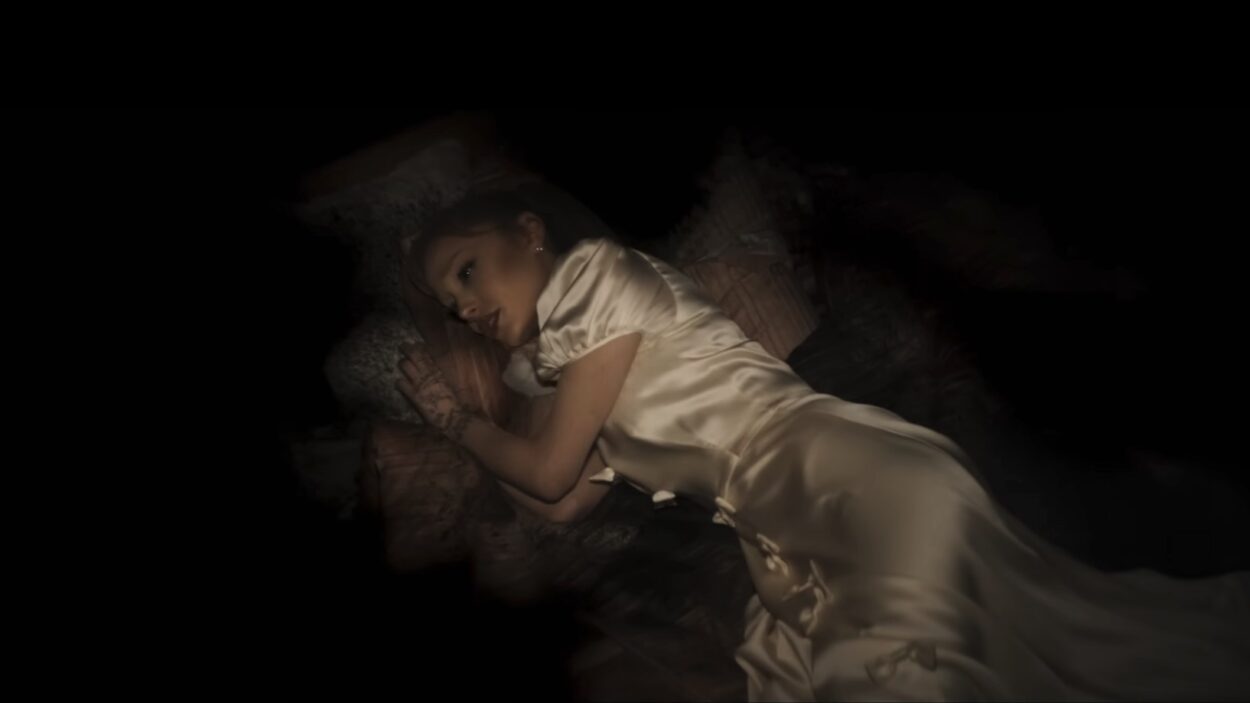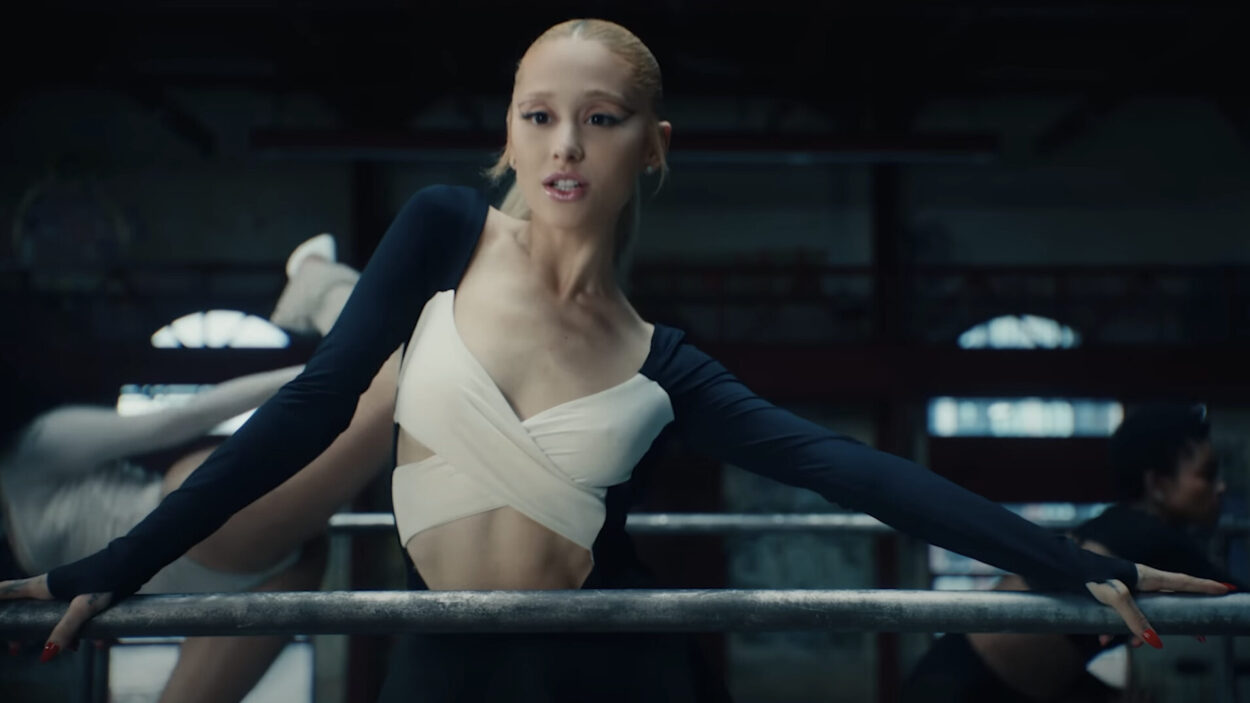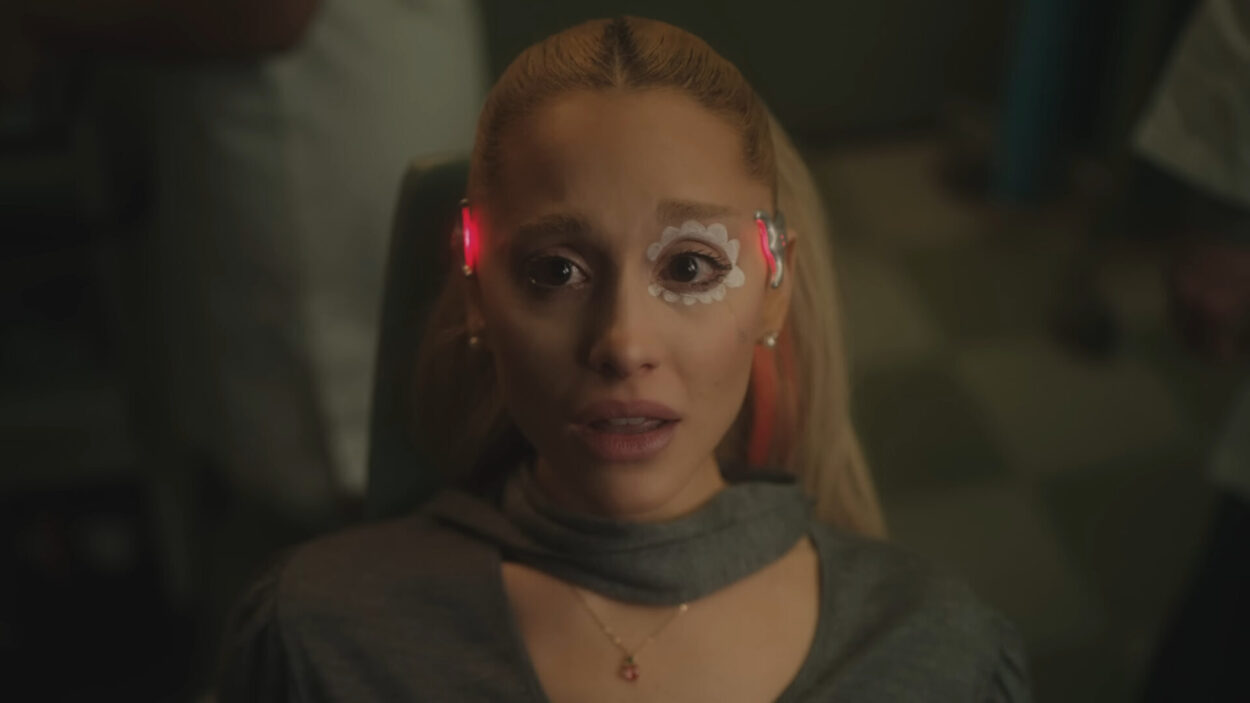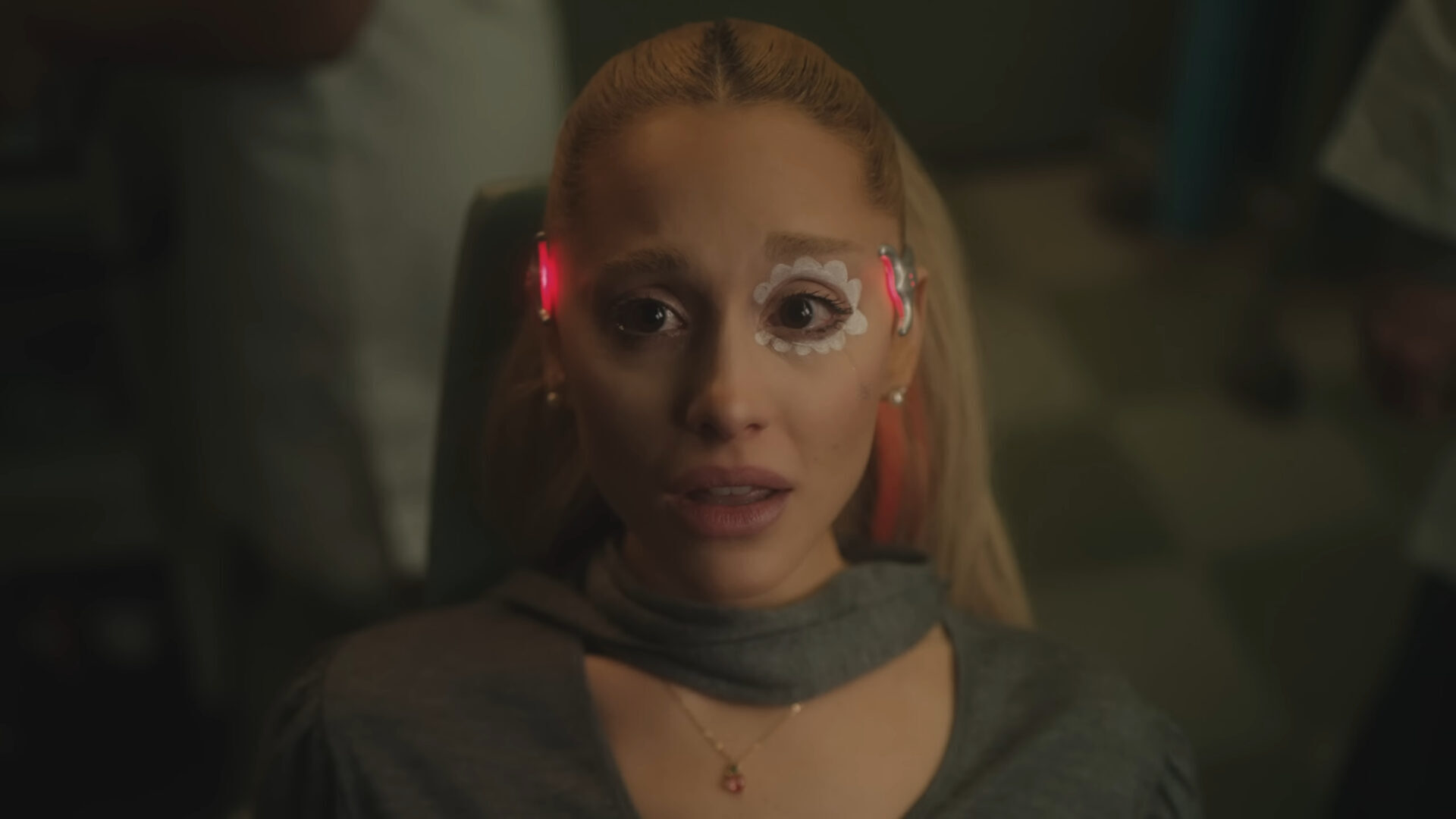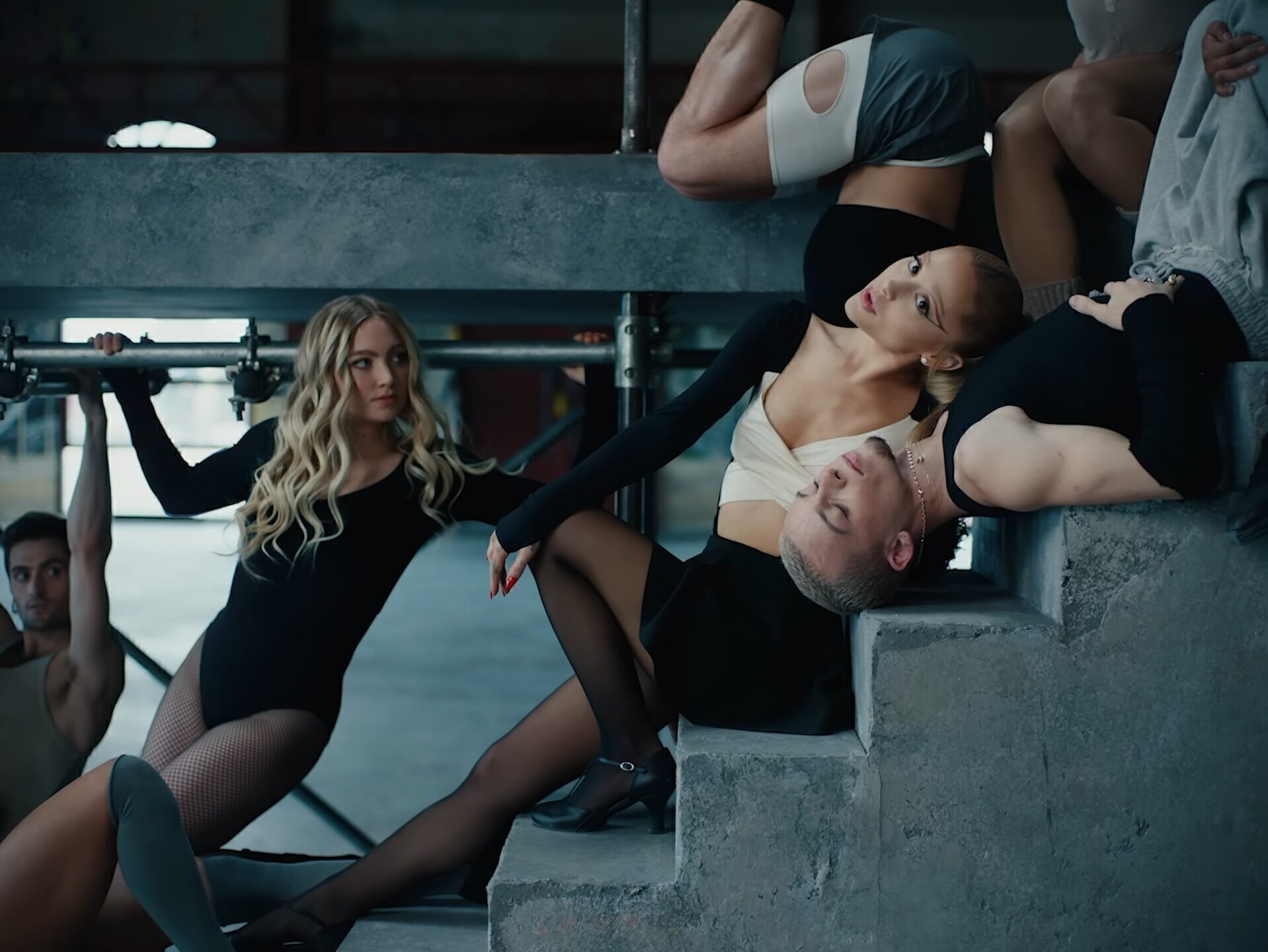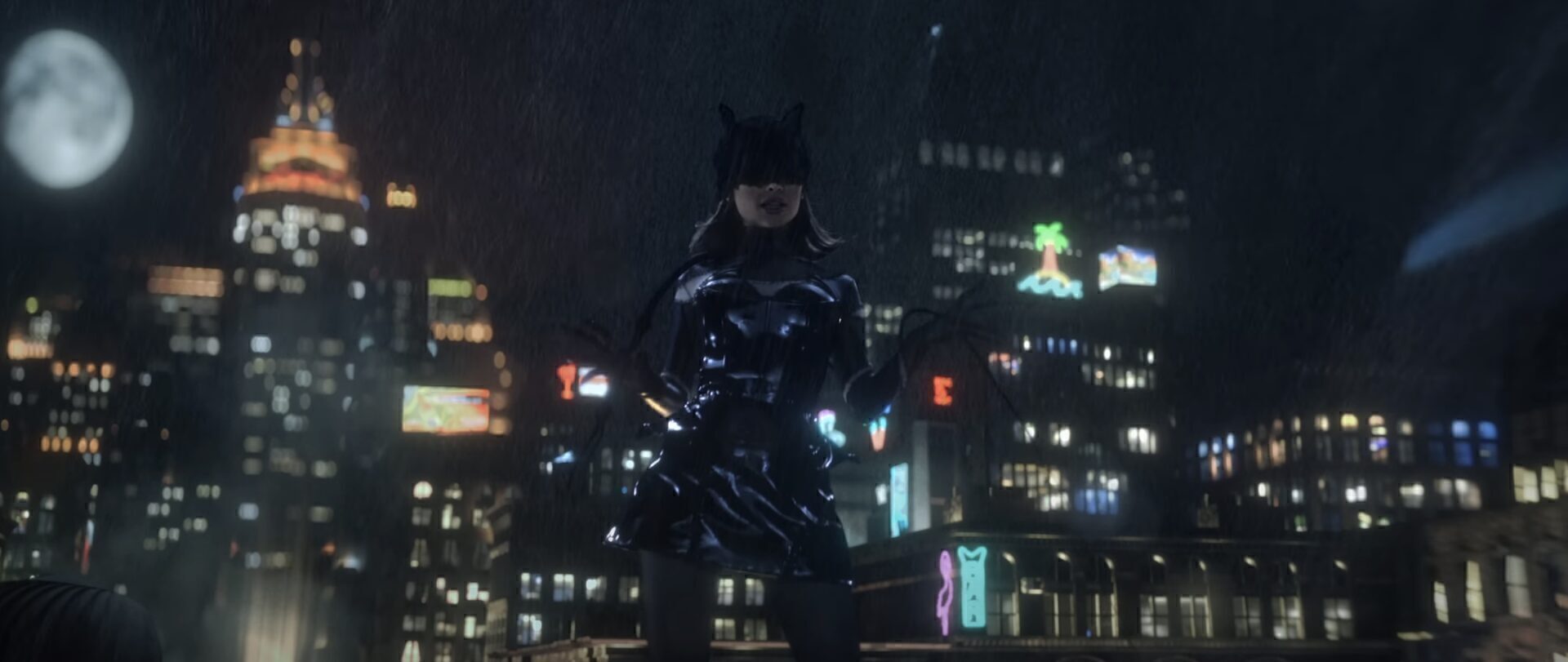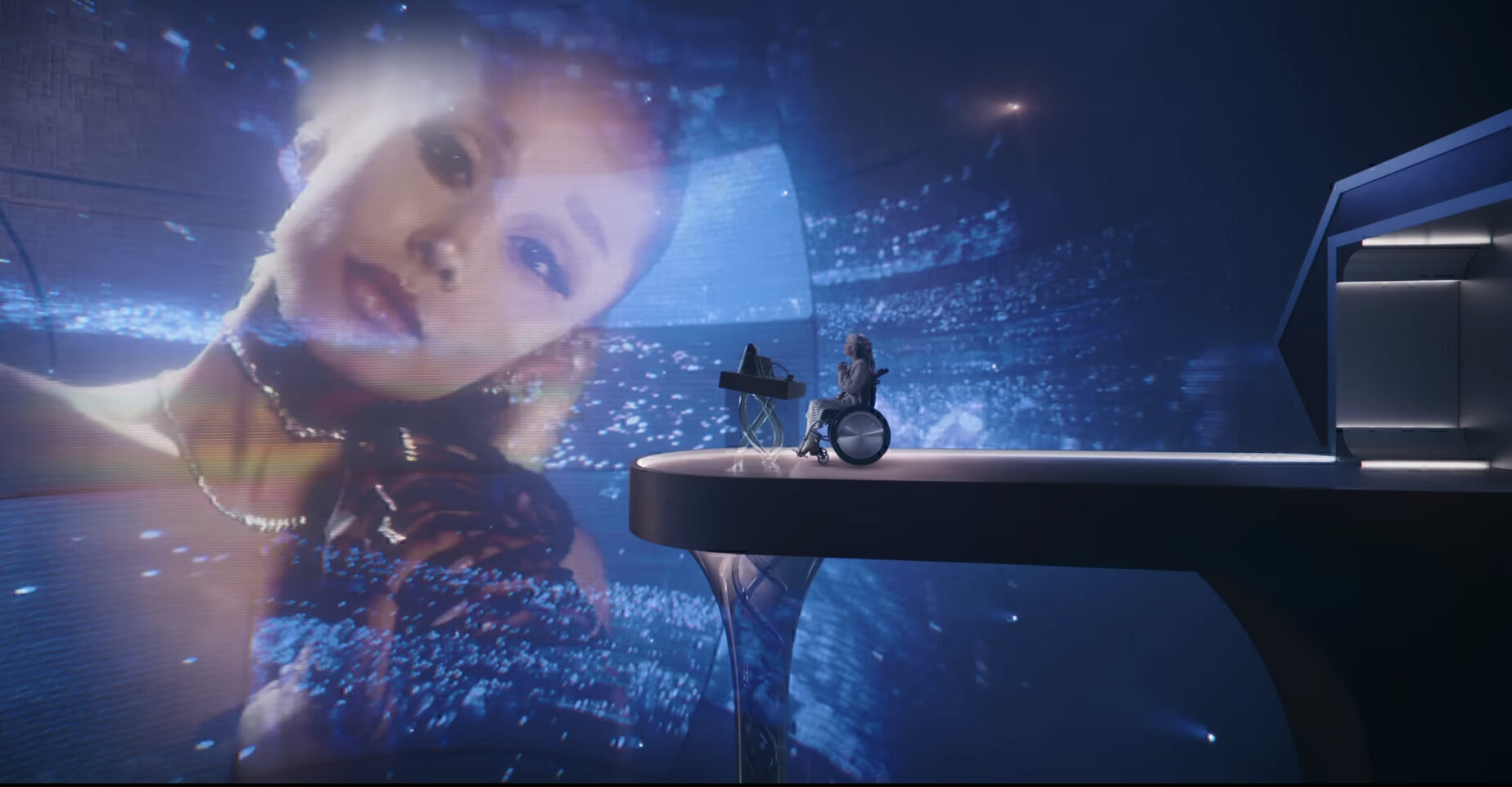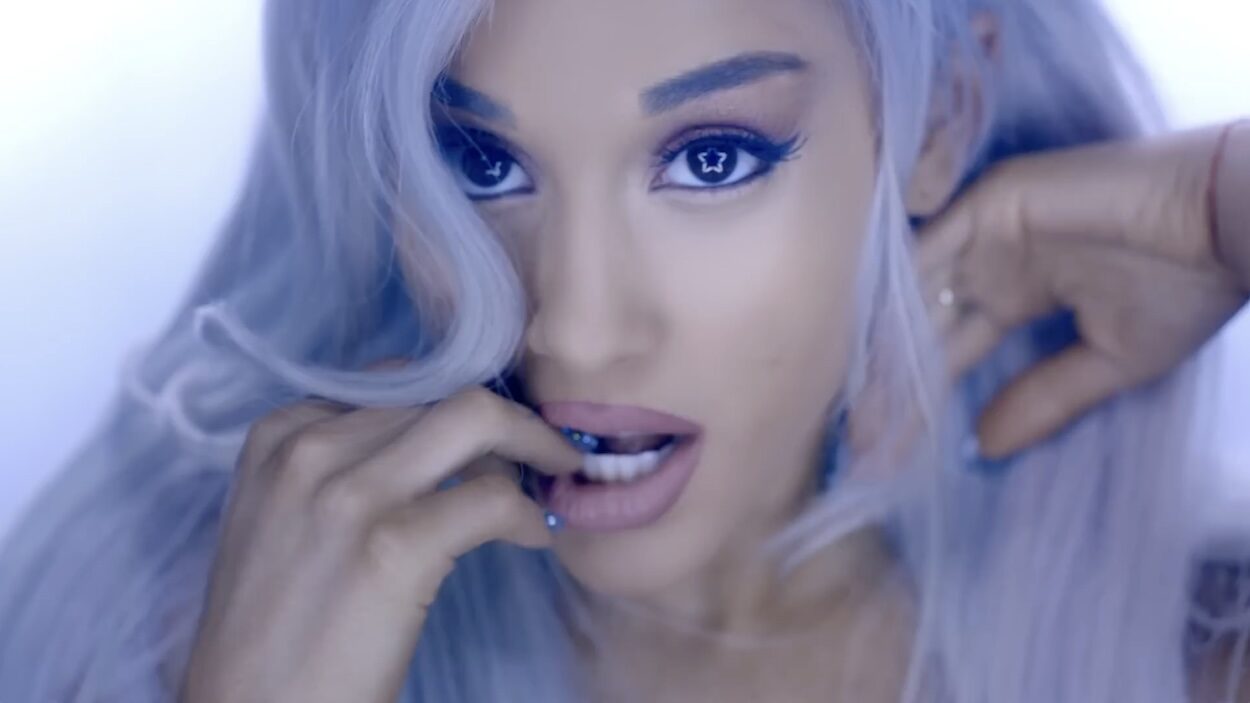brighter days ahead
Let’s keep things calm before this turns into 45 minutes of gassing you up – so let’s start at the beginning. How did you get into filmmaking?
My earliest memory, ever, is being in a movie theatre. From that point on, I was just obsessed with cameras. I was always stealing my parents’ VHS camcorder and making little movies – first around the house, then the neighbourhood. My grandfather was a huge cinephile but ended up going blind from diabetes, so he gave my brother and me his entire film collection. Suddenly I was surrounded by classics: Dr. Zhivago, Citizen Kane, Gone With the Wind, Indiana Jones… stuff I probably wouldn’t have sought out myself, but he passed it all down and I was like, “Well, I want to watch all of ‘em.”
So I ended up watching a lot of cinema from an early age. As I grew older I’d plead with my parents for a better camera and they were like, “Okay, do some work, save up and we’ll help you out.” And that just kept going – the projects got bigger, the cameras got better, and it became this full-on thing with my best friends. We eventually got into my grandpa’s trunk of old war outfits and we started making war movies in the woods. My dad worked in construction, so he built us props. We’d go to the army surplus store for smoke grenades. We were just a bunch of kids staging battle scenes, and I was the nerd in the group obsessing over the scenes, the camera, the shots and edits.
Eventually I taught myself how to do VFX so I could throw in explosions. But what I loved most was sitting everyone down and premiering these movies for our friends and families.
So how did that childhood hobby turn into a professional career?
In high school, I was lucky. A couple of teachers ran a TV production programme and saw I had some experience, so they let me focus on short films instead of boxing me in to do traditional stuff like reporting or video journaling.
The other students started calling me “Baby Spielberg” – I didn’t hate it.
I graduated High School in 2008, right in the middle of the housing collapse. My parents were hit financially. I didn’t have the best grades or resources so college wasn’t really an option.
I’d grown up in Florida where Hollywood Beach is more Hollywood than Hollywood, California, and I had dreams to go to LA, to USC film school or UCLA. My parents were looking at me: “How are you going to LA?” and this and that, “We can’t afford to send you there.”
I had the posters on my wall. But it just wasn’t realistic. So I stayed in Florida, working in restaurants, and didn’t pick up a camera for a while. It felt like that dream wasn’t a possibility any more.
Then a rapper I went to high school with tweeted that he needed someone to shoot a video. I wasn’t sure – I’d never done a music video – but I hit him up, and he was like, “Pull up right now.” We shot something that day, and that kicked everything off. He helped me get better gear, and as he grew and started collaborating with bigger artists, I got introduced to more musicians and they started inviting me to shoot for them, it just went from there.
Tell us about Lucky Bastards – who’s involved and where did the name come from?
Lucky Bastards is the production company I started with all my childhood friends and brother. Literally the same kids I was making war movies with in the woods. My brother is Head of Production. My best friend Nick, who used to run a restaurant, is now CFO – I told him production’s basically just itemising stuff, like back of house. One of our other guys from third grade is out here too. So it’s really this core team of people I’ve grown up with, now running a real company together.
We still get the same buzz we did as kids – but now we’re on backlots, with actual budgets. It’s surreal. The cops used to get called on us when we were out in the woods shooting fake battles – and now we’re getting paid to do it.
The directors we work with? I seek them out. I don’t wait for someone to blow up – I’m looking for talent that i see potential in. Probably because I remember how important it was when someone believed in me. I look for directors who remind me of myself at that stage – the ones who just need the right support to level up.
And then on the commercial side, I’m repped by London Alley. That relationship is more than just getting work though. Those guys have been around for more than 20 years and the expertise that sits across the whole business is just crazy. Being with them is deeper than seeing scripts and taking meetings for new opportunities. They really allow me and the whole team to grow exponentially – it’s an extra set of creative minds and production craft.
we can’t be friends
Which of course leads to the million dollar questions around your most recent body of work. I would imagine the collaboration with Ariana has been somewhat transformative to where you are now just in terms of visibility and exposure. But how did that initial opportunity to work on Eternal Sunshine come about? Was it a Florida thing or was it a London Alley thing or…?
It’s kind of funny because her team reached out after she saw some of my work, especially the Doja Cat – Demons video. She’s a big horror fan and really connected with the freeform creative process behind that one. So we jumped on Zoom. She didn’t have much of the album recorded at the time but she played me elements and some of the songs she was working on. She was like, “Hey, this is what I’m trying to do with the album. And no pressure, just see how you feel about it.”
The moment she mentioned calling the album Eternal Sunshine, something clicked. That film means a lot to me. I love it. All the things she was saying really connected with me on a creative plane to the extent that I think she felt a sigh of relief like, “oh, this is somebody who gets me and what I’m trying to do.”
From that first video – yes, and? – we developed a shorthand. I quickly understood what she liked, what she didn’t. I think whatever you’re doing creatively you need people like that in your corner. We both had that Florida bond too – she’s 561area code, I’m 954. Both big Panthers hockey fans, all that. It made the whole thing feel familiar.
The main thing is we have a lot of fun when we’re creating and we don’t have a lot of middlemen, it’s really just me and her. We kick things straight to each other. Sometimes it’s in the middle of the night as a voice note.
I always tell her, there’s not a single idea that’s a bad idea. I’m always encouraging her, and the other creative people around me, to share any idea – any idea can lead to something amazing. I always try to be a listener.
yes, and?
Had you discussed the idea of a short film from the outset or did that evolve across the arc of the Eternal Sunshine promos?
We never really discussed it to be honest. We started with yes, and? – that was always the first song of the album and we took it step by step from there. It was like, “let’s feel how one goes.” You never commit to anything – we might have got on set and the vibe could have been off. But we had so much fun and so did the crew.
The first treatment I sent was connecting with a Bob Fosse / Paula Abdul / David Fincher Cold Hearted vibe because the song had this nineties dance track. She was like, “Yes. It’s this!”
We started carving into the messaging behind yes, and?, which is really about the media. We were riffing on how to reflect that in the video – bringing in her critics somehow. That evolved into the idea of her sending out cards to her biggest critics, inviting them to witness this visual and figurative transformation. I think through that, she felt like, “Okay, this guy gets what I’m trying to say with this album. I like how he works – and that he includes me.”
Once the song was out and the album was buzzing, we jumped straight into what was next. The second single wasn’t locked in yet, but I’d listened to everything and thought, we can’t be friends just screams hit. We’d always wanted to do something that paid homage to Eternal Sunshine, and I called her one day like, “I have this idea – we can’t be friends would tie in so well with that film.” And she was like, “Really? I hadn’t thought of it for that – it was more about my relationship with the media,” like in the line ‘you cling to your paper and pens.’ And I said, “Sure, but fans don’t really know what that kind of relationship is like. What they do get is love. Everyone knows what a crush feels like. If we frame this as a love story, it could really land emotionally while still saying what you want.” That’s where the treatment started.
She was really into the idea of playing a character rather than literally being herself. So we talked about remixing the Clementine character from the film – and that’s how Peaches was born. It let her create a separation between Ariana the artist and performer, and who she is in her personal life. A character she could fully inhabit and play.
the boy is mine
For the fans, then – is it also Peaches who stars in the boy is mine?
Yeah, technically that’s Peaches too. That was actually one of the first tracks she played me and I immediately loved it. I think on the first call I was like, “We should get Penn Badgley and flip the script – you’re the one stalking him.” She was friends with him, so she reached out, and he was down.
Then one day she sent me a note saying, “I want to play kind of a villain-esque character,” and attached this gif of Michelle Pfeiffer as Catwoman licking her paw. I was like, “Fuck yes. Let’s do it.”
That Batman Returns scene is iconic – Selina Kyle having a psychotic break, smashing up all the cutesy, submissive stuff in her apartment before that line: “I don’t know about you, Miss Kitty, but I feel so much yummier.” It’s like required viewing for anyone into cinematography or art direction. That moment, that Burton energy – I was like, “I want to do that.”
So we started building from there. The Catwoman angle evolved into this idea of a city overrun by giant rats, which gave us a perfect gateway for the reference. Ariana was like, “We have to get Brandy and Monica to guest as a nod to their track,” because that song really defined a whole vibe and era. So we wrote them in as news anchors setting up the story – and it all just started falling into place.
The shoot was a blast. Ari was totally in it – she even trained with a whip coach and actually learned how to crack it. At one point I looked around and the whole set was just smiling, everyone completely living in the moment. Visually, we wanted a warm, vintage patina – something that felt nostalgic but still cinematic and modern. We didn’t box ourselves into anything too rigid; we wanted Ariana to have room to improvise and shape scenes in the moment, bring her own meaning to it. That freedom really drove the energy on set.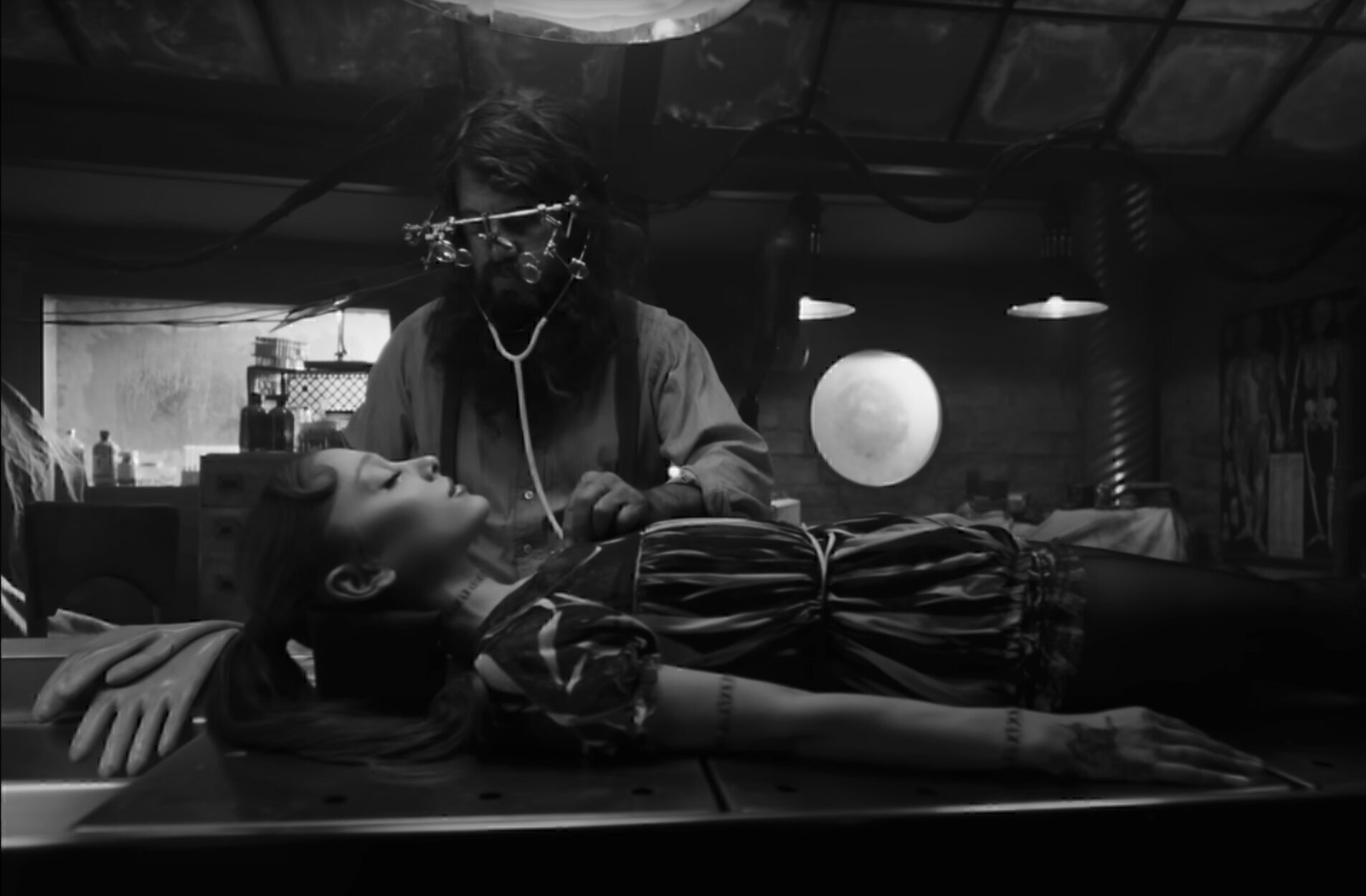
brighter days ahead
Which brings us to the final chapter – Brighter Days Ahead. Your short film was staggering. The hype, the scale, but it still felt intimate. Tell us everything.
Because I wasn’t too caught up in her past work or preconceived ideas about her as an artist, I approached everything with a fresh lens. I think she responded to that – it let me pitch ideas without assumptions, and brought a different creative energy to the table.
The short film really took shape around the time she was prepping her Fallon performance. She mentioned a deluxe version of the album and we started tossing around this Black Mirror-style concept: Peaches as an old woman, reviewing memories that somehow weren’t erased during we can’t be friends. The idea was to connect 3 or 4 songs into a bigger arc, weaving the earlier videos together into a full narrative.
I pitched: what if Peaches goes back to that facility since we can’t be friends, only now she’s older and it’s further in the future – and maybe they found a way to store memories instead of erasing them. We kept pulling on that thread and started building it out visually and emotionally.
We picked the songs carefully – Supernatural, a fan favorite that never had a video; Eternal Sunshine, obviously; and Dandelion, which is a really intimate thank-you to her fans. This whole era has been incredibly personal and healing for her, so we wanted that to come through immediately. That’s why the short opens with real home movie footage of her and her family – she actually edited that section herself. It sets the tone for a story that explores all different kinds of love: romantic, familial, generational.
When we hit twilight, it becomes this fragmented memory of we can’t be friends, clinging to the past until it’s overwhelmed by a white light – almost like the memory is decaying. But it’s also about finding your light, letting go of what’s holding you back so you can fully be yourself in the present.
And for Hampstead, we were lucky enough to cast her dad as the scientist. I’ll leave the interpretation open, but it was such a privilege to witness that – Ariana directing her own father on set. I mean, how many directors ever get to have that experience? It was something really special.
